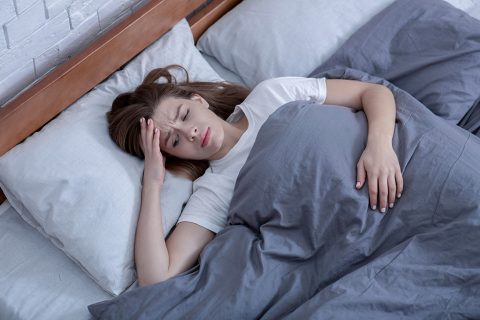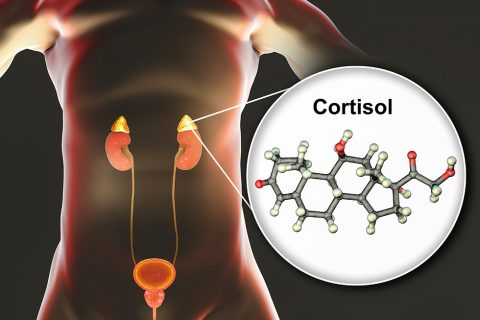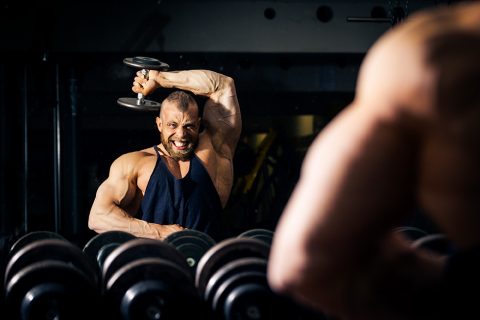Getting a good night’s healthy sleep is essential for optimal health.
Unfortunately, many people struggle to enhance sleep quality they need each night. This can be due to a variety of factors, including stress, anxiety, and poor sleep habits. Unfortunately, sleep supplements aren’t closely regulated by the FDA (Food and Drug Administration). In which case, issues of product safety and quality control abound. If you have trouble sleeping, consider using supplements.
Most people know that getting healthy sleep is important for overall health, but did you know that insufficient sleep has been linked to a higher risk of conditions such as heart disease, diabetes, and obesity? The National Sleep Foundation recommends that older adults get 7-9 hours of sleep per night, but many people fall short of this goal. If you’re struggling to get enough sleep, there are a few things you can do to help improve the situation. First, try to establish a regular sleep schedule and stick to it as much as possible. In addition, create a relaxing bedtime routine to help your body wind down before sleep. Finally, avoid caffeine and alcohol in the evening, as these can interfere with sleep. Sleep supplements can also be a helpful sleep aid for people who struggle to get enough shut-eye. Sleep parameters such as sleep latency, total sleep time, and sleep efficiency can all be improved with supplementation.
What sleep supplements can you take to help you sleep?
There are a variety of supplements and sleep aid that can help promote sleep. One of the most popular is melatonin, which is a hormone that helps regulate sleep-wake cycles. Melatonin supplements sleep can be helpful for people who have difficulty falling asleep or who have irregular sleep schedules. Other sleep-promoting supplements include magnesium and valerian root. Magnesium helps to relax muscles and promote sleep, while valerian root is a sedative herb that has been used to treat insomnia for centuries.
Magnesium
Magnesium is a mineral that is critical for many bodily functions, including sleep. magnesium plays a role in the production of melatonin, which is the hormone that regulates sleep. Magnesium also helps to relax the body and mind, making it easier to fall asleep and stay asleep. In addition, magnesium deficiency has been linked to insomnia and others.
Magnesium relaxes the nervous system and reduces inflammation, both of which contribute to a lack of sleep. A recent research of adults with poor sleep quality, as defined by a sleep quality index, discovered that taking a magnesium supplement improved sleep quality by 60% and reduced inflammatory stress indicators. Magnesium provides for proper levels of serotonin, the brain chemical that elevates mood and has a calming, soothing effect on the brain, in addition to relaxing the central nervous system.
If you are interested in trying magnesium sleep supplements for better sleep, there are a few things to keep in mind. First, magnesium comes in different forms, including magnesium oxide, magnesium citrate, and magnesium glycinate. The form of magnesium you choose will likely depend on your personal preference and health needs. Second, it is important to start with a lower dose of magnesium and increase gradually as needed. Magnesium supplements are best taken at night before bedtime.
Melatonin
Melatonin is a hormone that helps to regulate the body’s sleep-wake cycle. The body produces melatonin in response to darkness, and levels of this hormone peak at night. Melatonin sleep supplements can be helpful for people who have difficulty falling asleep, trouble sleeping or staying asleep. In addition, melatonin may be helpful for people with jet lag or who work irregular hours.
When choosing a melatonin sleep supplement or sleep medicine, it is important to consider the dosage. A common dose of melatonin is between 0.25 and 0.50 mg, but some people may need a higher or lower dose depending on their individual needs. It is also important to take melatonin supplements 30-60 minutes before bedtime for best results. Melatonin levels rise in the evening and peak around midnight, so taking a supplement too early in the evening may not be effective. Doctors may also prescribe sleeping pills.
Taurine
Taurine is an amino acid that has many health benefits, including improved sleep. Taurine helps to regulate the nervous system and has calming effects on the body. It also promotes healthy magnesium levels in the brain, which can reduce trouble sleeping.
Taurine stimulates the release of the inhibitory neurotransmitter GABA, which calms the nervous system. GABA causes the brain to shut down so you can get a good night’s sleep. Taurine can help you sleep better by calming anxiousness and racing thoughts.
Taurine supplements are typically safe and well-tolerated, but it is always best to speak with a healthcare professional before starting any new supplement.
5-Hydroxytryptophan (5-HTP)
5-HTP is suggested for individuals suffering from stress and excessive cortisol levels since it raises the relaxing, feel-good chemical serotonin. Both melatonin and serotonin, which can help you sleep, are made from the molecule 5-hydroxytryptophan (5-HTP).
Tryptophan is an amino acid that is converted into serotonin in the brain. Serotonin is a neurotransmitter that plays a role in sleep, mood, and anxiety. Low levels of serotonin are linked to depression and anxiety, both of which can interfere with sleep. Taking a supplement that contains tryptophan can help to increase serotonin levels and improve sleep.
The body uses tryptophan to make serotonin and melatonin. Melatonin is the hormone that makes you feel sleepy at night. Serotonin helps regulate your mood and social behavior. It also regulates your appetite, digestion, metabolism, and inflammation response. Low levels of serotonin are linked with conditions like insomnia, depression, anxiety disorders, migraines, fibromyalgia, and chronic pain.
You can take tryptophan as a supplement to help you sleep better. Taking tryptophan supplements before bedtime can be sleep improvements and might support healthy sleep. Taking a supplement that contains tryptophan can help increase serotonin levels and improve sleep.
Valerien Root
Valerian root is a popular herbal remedy for insomnia. It is thought to work by increasing levels of the neurotransmitter GABA, which has calming effects on the nervous system. Valerian root is generally considered safe, but it can cause some side effects like headaches, dizziness, and nausea.
Valerian root is an herb that has been used for centuries to treat sleep disorders and promote relaxation. The sedative effects of valerian root are thought to be due to its ability to increase levels of the neurotransmitter GABA in the brain.
Valerian activates GABA, which calms the brain in a similar way to taurine, albeit the herb may be more sedative. This can be beneficial in certain instances, such as for insomnia in menopausal women or if stress and sleeplessness are interfering with your ability to sleep. Because of their relaxing, anti-anxiety characteristics, medicinal plants like valerian root have been demonstrated to help persons with insomnia fall asleep and remain asleep. Individual efficacy varies by plant; some people get positive outcomes while others do not.
You can take valerien root as a supplement to treat sleep problems.
Gamma-aminobutyric acid (GABA)
GABA is a neurotransmitter that plays a role in sleep, mood, and anxiety. Low levels of GABA are linked with conditions like insomnia, depression, anxiety disorders, migraines, fibromyalgia, and chronic pain.
You can take GABA as a supplement to induce sleep. Taking GABA supplements before bedtime can help you improve sleep quality and sleep more soundly.
Chamomile (Matricaria chamomilla)
Chamomile is a popular herbal remedy for insomnia. Chamomile is thought to work by increasing levels of the neurotransmitter GABA, which has calming effects on the nervous system. Chamomile is generally considered safe, but it can cause some side effects like headaches, dizziness, and nausea.
Chamomile is an herb that has been used for centuries to treat sleep disorders and promote relaxation. The sedative effects of chamomile are thought to be due to its ability to increase levels of the neurotransmitter GABA in the brain. GABA is a chemical that helps to regulate nerve activity and has calming effects on the nervous system.
You can take chamomile as a supplement to help you sleep better. Taking chamomile supplements before bedtime can help you .
L-theanine
L-theanine is an amino acid that is found in green tea. L-theanine is thought to work by increasing levels of the neurotransmitter GABA, which has calming effects on the nervous system. L-theanine is generally considered safe, but it can cause some side effects like headaches, dizziness, and nausea.
It’s also been shown to help with sleep difficulties caused by caffeine. Anyone can benefit from l-theanine, but those who can’t sleep or give up coffee will find it most beneficial. L-theanine is present in green tea. It has been shown in studies to help with sleep, reduce mental and physical stress, and improve cognition it therefore also considered a nootropic.
You can take L-theanine as a supplement to induce sleep. Taking L-theanine supplements before bedtime can help you fall asleep faster and get healthy sleep.
Tryptophan (l-tryptophan)
Tryptophan is an amino acid that is found in turkey and other foods. Tryptophan is thought to work by increasing levels of the neurotransmitter serotonin, which has calming effects on the nervous system. Tryptophan is generally considered safe, but it can cause some side effects like headaches, dizziness, and nausea.
L-tryptophan supplements are often used as a natural treatment for insomnia and anxiety. Use L-tryptophan before bedtime.
Glycine
Glycine is an amino acid that is found in meat, poultry, and fish. Glycine is thought to work by increasing levels of the neurotransmitter glycine, which has calming effects on the nervous system and drops your body temperature. Glycine is generally considered safe, but it can cause some side effects like headaches, dizziness, and nausea.
You can take glycine as a supplement to help you sleep better.
Ginkgo biloba
Ginkgo biloba is an herb that is found in supplements. Ginkgo biloba is thought to work by improving blood circulation and increasing levels of the neurotransmitter acetylcholine, which has calming effects on the nervous system. Ginkgo biloba is generally considered safe, but it can cause some side effects like headaches, dizziness, and nausea.
You can take ginkgo biloba as a supplement to help you sleep better.
Diphenhydramine
Diphenhydramine is an antihistamine that is found in over-the-counter sleep aids. Diphenhydramine is thought to work by blocking the action of histamine, which has calming effects on the nervous system. Diphenhydramine is generally considered safe, but it can cause some side effects like headaches, dizziness, and nausea.
Doxylamine succinate
Doxylamine succinate is an antihistamine that is found in over-the-counter sleep aids. Doxylamine succinate is thought to work by blocking the action of histamine, which has calming effects on the nervous system. Doxylamine succinate is generally considered safe, but it can cause some side effects like headaches, dizziness, and nausea.
Jujube seed extract (Ziziphus jujuba var. spinosa)
Jujube seed extract is an herb that is found in supplements. Jujube seed extract is thought to work by improving blood circulation and increasing levels of the neurotransmitter GABA, which has calming effects on the nervous system. Jujube seed extract is generally considered safe, but it can cause some side effects like headaches, dizziness, and nausea.
Lemon balm (Melissa officinalis)
Lemon balm is an herb that is found in supplements. Lemon balm is thought to work by improving blood circulation and increasing levels of the neurotransmitter GABA, which has calming effects on the nervous system. Lemon balm is generally considered safe, but it can cause some side effects like headaches, dizziness, and nausea.
Passionflower (Passiflora incarnata)
Passionflower is an herb that is found in supplements. Passionflower is thought to work by improving blood circulation and increasing levels of the neurotransmitter GABA, which has calming effects on the nervous system. Passionflower is generally considered safe, but it can cause some side effects like headaches, dizziness, and nausea.
Valerian (Valeriana officinalis)
Valerian is an herb that is found in supplements. Valerian is thought to work by improving blood circulation and increasing levels of the neurotransmitter GABA, which has calming effects on the nervous system. Valerian is generally considered safe, but it can cause some side effects like headaches, dizziness, and nausea.
Tart cherry (Prunus cerasus)
Tart cherry is an herb that is found in supplements. Tart cherry is thought to work by improving blood circulation and increasing levels of the neurotransmitter GABA, which has calming effects on the nervous system. Tart cherry is generally considered safe, but it can cause some side effects like headaches, dizziness, and nausea.
Rafuma leaf (Gynostemma pentaphyllum)
Rafuma leaf is an herb that is found in supplements. Rafuma leaf is thought to work by improving blood circulation and increasing levels of the neurotransmitter GABA, which has calming effects on the nervous system. Rafuma leaf is generally considered safe, but it can cause some side effects like headaches, dizziness, and nausea.
Ashwagandha (Withania somnifera)
Ashwagandha is an herb that is found in supplements. Ashwagandha is thought to work by improving blood circulation and increasing levels of the neurotransmitter GABA, which has calming effects on the nervous system. Ashwagandha is generally considered safe, but it can cause some side effects like headaches, dizziness, and nausea.
Ashwagandha has been called the king of Ayurvedic herbs. Research suggests that it works well for reducing stress and anxiety. It may also modestly enhance strength performance, improve glucose metabolism, and increase testosterone levels, but more research is needed to confirm this.
Withania somnifera (Ashawagandha) is a highly regarded herb in the Indian Ayurvedic medical system it is used as a Rasayana a Healing Tonic. It’s used for a variety of ailments, but most notably as a nerve tonic. Many scientific research were conducted in light of these facts, and its adaptogenic and anti-stress properties were thoroughly investigated.
Ashwagandha is also known as “Indian Ginseng” or “Indian Winter Cherry” (Withania somnifera, fam. Solanaceae). It is one of the most significant herbs in Ayurveda (India’s traditional medical system), and it has been utilized as a Rasayana for millennia for its wide-ranging health effects. Rasayana is a herbal or metallic concoction that promotes a youthful physical and mental state of health as well as happiness. These medicines are given to little children as tonics, and they are also used by the middle-aged and old to extend their lives. Ashwagandha is the most well-known of the Rasayana herbs in Ayurveda. The herb is known as “Sattvic Kapha Rasayana” (Changhadi, 1938). Adaptogens and anti-stress compounds make up the majority of Rasayana herbs.
Ashwagandha is available as a churna, a finely sieved powder that can be combined with water, ghee (clarified butter), or honey. It boosts memory and improves the function of the brain and neurological system. It promotes a healthy sexual and reproductive balance by improving the function of the reproductive system. It boosts the body’s stress resistance because it’s a powerful adaptogen. By increasing cell-mediated immunity, Ashwagandha boosts the body’s resistance against disease. It also has powerful antioxidant qualities, which help to protect cells from free radical damage.
Ayurveda, India’s traditional medical system, can be traced back to the year 6000 BC (Charak Samhita, 1949). Ashwagandha has been utilized as a Rasayana for the past 6000 years. Ashwagandha root is used as a tonic, aphrodisiac, narcotic, diuretic, anthelmintic, astringent, thermogenic, stimulant, and anthelmintic. Ashwagandha gets its name from the fact that the root smells like horses (“ashwa”) (on consuming it gives the power of a horse). Emaciation in children (when administered with milk, it is the finest tonic for youngsters), old age debility, rheumatism, vitiated vata conditions, leucoderma, constipation, sleeplessness, neurological breakdown, goiter, and so on are all popular uses (Sharma, 1999).
Inositol
Inositol is a nutrient that is found in supplements. Inositol is thought to work by improving blood circulation and increasing levels of the neurotransmitter GABA, which has calming effects on the nervous system. Inositol is generally considered safe, but it can cause some side effects like headaches, dizziness, and nausea.
Inositol is a vitamin-like substance that for a long time was assigned to the complex of B vitamins under the name vitamin B8. Inositol acts as a secondary messenger in cells and is also an important building block of the cell membrane. It acts as a building block for neurotransmitters.
Saffron (Crocus sativus L.)
Saffron is an herb that is found in supplements. Saffron is thought to work by improving blood circulation and increasing levels of the neurotransmitter GABA, which has calming effects on the nervous system. Saffron is generally considered safe, but it can cause some side effects like headaches, dizziness, and nausea.
Lavender (Lavandula angustifolia)
Lavender is an herb that is found in supplements. Lavender is thought to work by improving blood circulation and increasing levels of the neurotransmitter GABA, which has calming effects on the nervous system. Lavender is generally considered safe, but it can cause some side effects like headaches, dizziness, and nausea.
Hemp oil (Cannabis sativa)
Hemp oil is an herb that is found in supplements. Hemp oil is thought to work by improving blood circulation and increasing levels of the neurotransmitter GABA, which has calming effects on the nervous system. Hemp oil is generally considered safe, but it can cause some side effects like headaches, dizziness, and nausea.
CBD (cannabidiol)
CBD is an herb that is found in supplements. CBD is thought to work by improving blood circulation and increasing levels of the neurotransmitter GABA, which has calming effects on the nervous system. CBD is generally considered safe, but it can cause some side effects like headaches, dizziness, and nausea.
Jujube (Ziziphus jujuba)
Jujube is an herb that is found in supplements. Jujube is thought to work by improving blood circulation and increasing levels of the neurotransmitter GABA, which has calming effects on the nervous system. Jujube is generally considered safe, but it can cause some side effects like headaches, dizziness, and nausea.
Kava (Piper methysticum)
Kava is an herb that is found in supplements. Kava is thought to work by improving blood circulation and increasing levels of the neurotransmitter GABA, which has calming effects on the nervous system. Kava is generally considered safe, but it can cause some side effects like headaches, dizziness, and nausea.
Iron
Iron is a mineral that is found in supplements. Iron is thought to work by improving blood circulation and increasing levels of the neurotransmitter GABA, which has calming effects on the nervous system. Iron is generally considered safe, but it can cause some side effects like headaches, dizziness, and nausea.
Zinc
Zinc is a mineral that is found in supplements. Zinc is thought to work by improving blood circulation and increasing levels of the neurotransmitter GABA, which has calming effects on the nervous system. Zinc is generally considered safe, but it can cause some side effects like headaches, dizziness, and nausea.
Multivitamin
Multivitamins are a type of supplement that contains many different vitamins and minerals. Multivitamins are thought to work by improving blood circulation and increasing levels of the neurotransmitter GABA, which has calming effects on the nervous system. Multivitamins are generally considered safe, but they can cause some side effects like headaches, dizziness, and nausea.
You can take a multivitamin as a supplement to help you sleep better. Taking a multivitamin supplement before bedtime can help you fall asleep faster and sleep more soundly.
Are you looking for a good night’s overall sleep quality?
If so, consider using sleep medicine or get the best sleep supplements to improve your slumber. We’ve outlined some of the best supplements for sleep in this blog post and explained how they work. Give them a try and let us know how they help you get more restful sleep. Do you have any questions about which supplement might be right for you? Let us know, and we’d be happy to help.
If you are looking for a way to solve your sleep problems, sleep supplements may be worth considering.
Magnesium is safe and effective for most people, and it can be found in many different forms. Start with a lower dose and increase gradually as needed to find the perfect magnesium supplement for you.
Better quality sleep is vital for our overall health and well-being, yet many of us don’t get enough of it. If you’re looking for ways to improve your sleep or need sleep aids, one option is to take magnesium sleep supplements. Magnesium plays a role in the production of melatonin, which is the key sleep hormone that regulates sleep. Magnesium also helps to relax the body and mind, making it easier to fall asleep and stay asleep. Plus, magnesium deficiency has been linked to insomnia and other sleep disorders. When choosing a magnesium supplement, start with a lower dose and increase gradually as needed. And be sure to take magnesium supplements at night before bedtime for better sleep.
Nutritional supplements
€39,90






